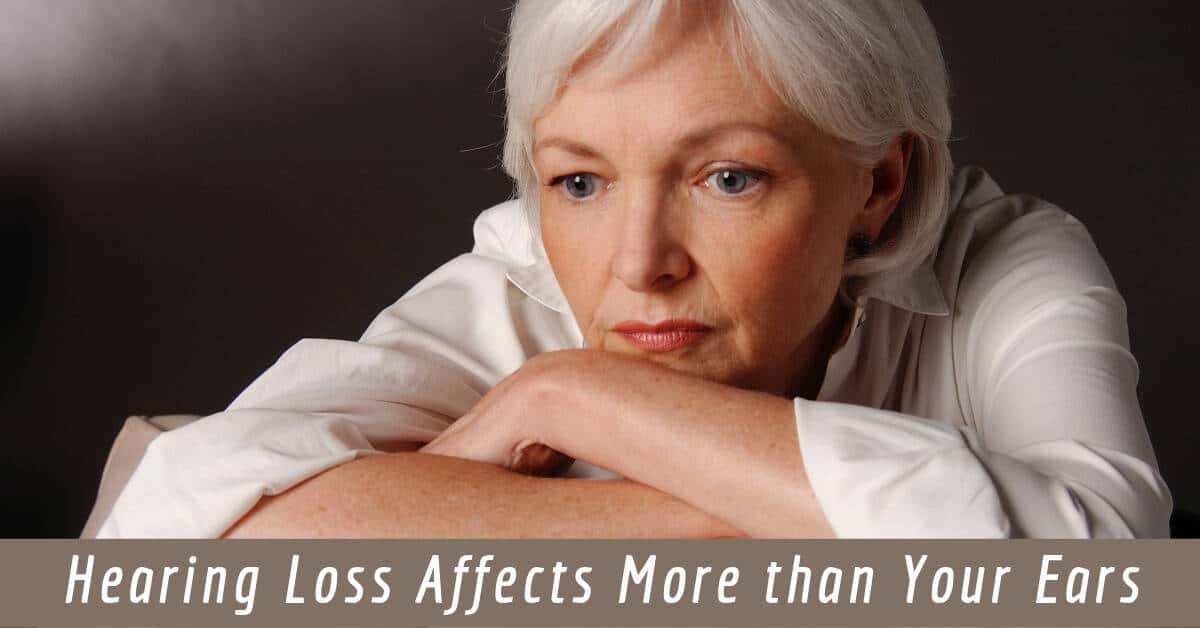More than 50% of Americans aged 60 or older experience some degree of hearing loss; however, it has been found that only about 20% of people with hearing loss who could benefit from hearing aids actually use them.
There are many reasons this could be true. One such reason is the cloud of stigma that unfortunately still surrounds hearing loss and hearing aids. In generations past, people who were 60 or older may have been considered elderly. In today’s society, this is simply not the case. Nowadays, people in their 60s are healthy and active members of the workforce and society, and enjoy a range of socially and physically enriching endeavors. These otherwise healthy, active, and engaged people do not want to perceive themselves or be perceived by society as “older”.
It’s time we break down the stigma surrounding hearing loss and hearing aids, for the sake of much more than our ears.
Untreated hearing loss has the potential to permeate into almost all aspects of our lives; from our workplace productivity, to our relationships, to our emotional and cognitive wellbeing, and to our physical health and safety.
Untreated Hearing Loss and Our Social Interactions
Untreated hearing loss interferes with our ability to fully hear and comprehend the conversations happening around us. This can cause hardships and serious misunderstandings both at home and in the workplace. Multiple studies have found that our personal relationships with our spouse, family, and close friends are the most profoundly impacted by untreated hearing loss. When we cannot hear those we love, it often comes across as a lack of interest in what a loved one is communicating. This can cause frustration and angst for both parties.
In the workplace, it has been found that people with untreated hearing loss are less likely to earn promotions than their peers without hearing loss or those who use hearing aids. Also, untreated hearing loss also seriously affects earning potential, accounting for a staggering 5-figure difference in incomes between those with untreated hearing loss and those who treat their hearing loss.
Untreated Hearing Loss and Our Emotional and Cognitive Wellbeing
Late last year, a study was published in the Journal of American Medical Association JAMA Otolaryngology-Head & Neck Surgery. This study investigated claims data for more than 200,000 adult patients from 2000-2016. The study found that untreated hearing loss was associated with an increased risk of developing multiple emotional and cognitive disorders, including depression and dementia. The relative risk for developing both dementia and depression was the strongest at 5 years for this study. Multiple studies throughout the globe have found similar results. Untreated hearing loss results in a higher risk for developing emotional and cognitive disorders such as depression, anxiety, and dementia disorders such as Alzheimer’s disease. Follow-up studies have found that treating hearing loss with hearing aids reduces the risk significantly.
Untreated Hearing Loss and Our Physical Health and Safety
The aforementioned study also found that untreated hearing loss increased study participants’ risk for physical issues such as accidental falls, nonvertebral fractures, acute myocardial infarction, and stroke. Untreated hearing loss increased the risk for all of these outcomes by about 20-50%. As time went on, the relative risk for these conditions increased. Treating hearing loss with hearing aids helps us to be more aware of our surroundings and more connected with those around us, increasing our physical health and wellbeing.
Are You Living with Untreated Hearing Loss?
Hearing loss is extremely gradual – occurring over a course of years or even decades. Because of the slow decline, hearing loss can be quite difficult to detect. If you are 60 years or older, or if you have noticed some of the early signs of hearing loss, it is imperative that you schedule a hearing assessment with us at Hearing Wellness Solutions. If you are experiencing some undetected hearing loss, it has the potential to be negatively affecting multiple areas of your life. Luckily, treating your hearing loss also has the potential to improve all of these areas as well. Reach out to our friendly team today to schedule your first hearing test.


